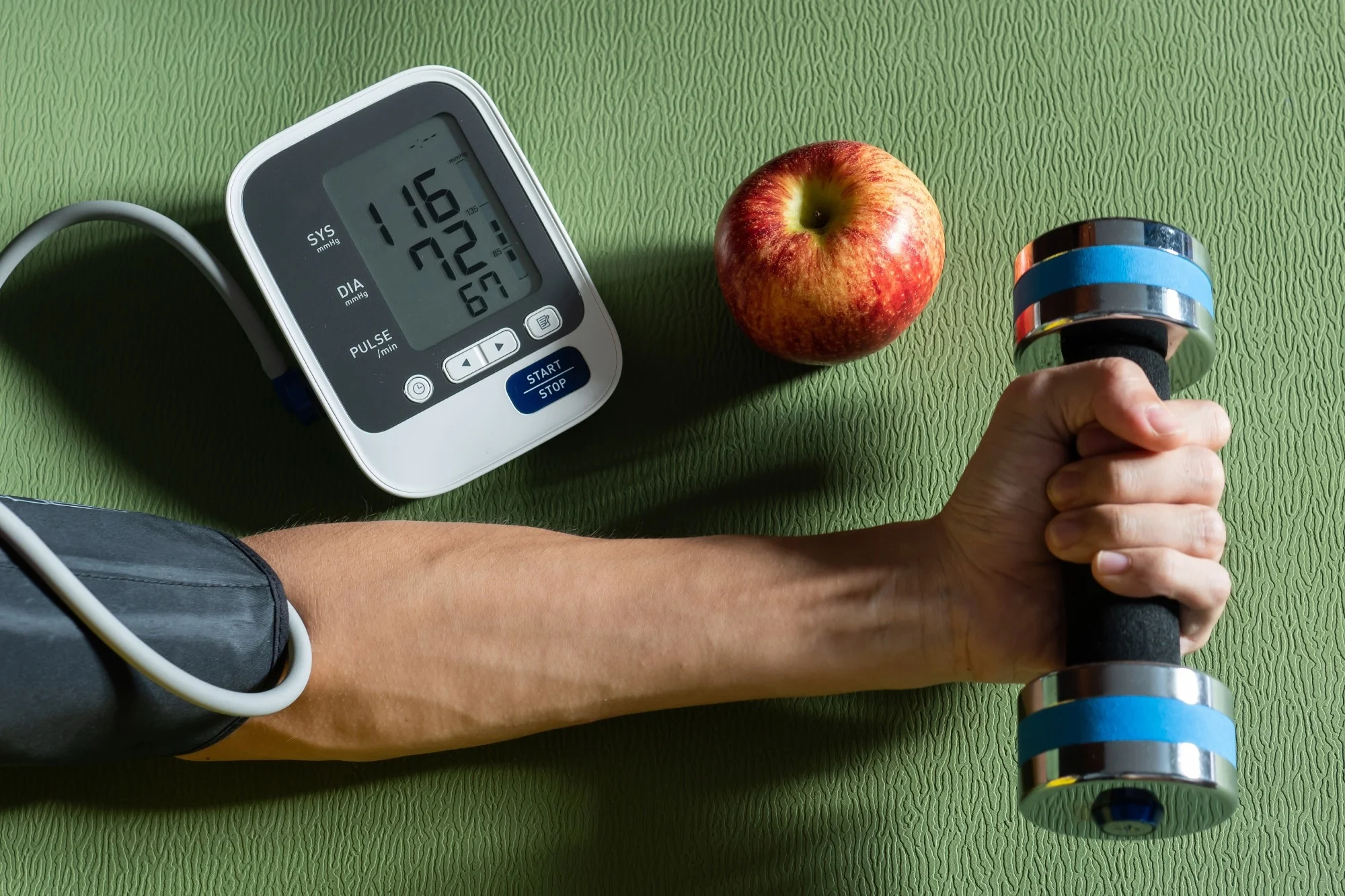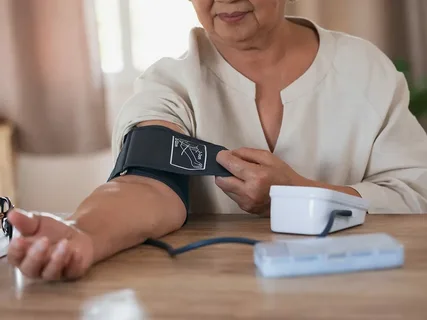Introducing Dr. Anna Garcia
Dr. Anna Garcia is a renowned cardiologist with over 15 years of experience in preventative heart care. Passionate about empowering patients, Dr. Garcia believes that small lifestyle changes can significantly impact heart health.
The Silent Threat: Understanding High Blood Pressure
High blood pressure, often called the “silent threat,” can lurk undetected for years, putting a strain on your heart and increasing your risk for serious health complications. It’s crucial to understand what high blood pressure is and why it’s so important to keep it under control.
Normally, blood pushes against your artery walls as it circulates throughout your body. High blood pressure occurs when this force becomes too strong, potentially damaging your arteries over time. This can lead to heart attack, stroke, kidney disease, and other health problems.
The good news? You can significantly reduce your risk of these complications by managing your blood pressure.

Lifestyle Hacks: Power Down Your Pressure Naturally
Dr. Garcia emphasizes the power of preventative measures. Here are 6 simple lifestyle tweaks you can incorporate into your daily routine to keep your heart happy and your blood pressure in check:
Move It or Lose It: The Power of Exercise
Regular exercise is a cornerstone of heart health. Physical activity strengthens your heart muscle, improves blood flow, and helps you manage weight – all factors that contribute to healthy blood pressure.
Dr. Garcia explains: “Exercise helps your body become more efficient at using oxygen, reducing the strain on your heart. Aim for at least 30 minutes of moderate-intensity exercise most days of the week.”
Examples: Brisk walking, swimming, cycling, dancing – find activities you enjoy and make them a regular part of your life.
Anecdote: “One of my patients, Sarah, was diagnosed with borderline high blood pressure. She started taking brisk walks with her dog every morning. Within a few months, her blood pressure returned to normal, and she felt energized throughout the day!”
Fuel Your Body Wisely: A Heart-Healthy Diet
What you eat directly impacts your heart health. A balanced, heart-healthy diet rich in fruits, vegetables, whole grains, and lean protein can significantly lower your blood pressure.
Dr. Garcia recommends: Limiting saturated and unhealthy fats, added sugars, and processed foods. These can contribute to weight gain and inflammation, both of which can elevate blood pressure.
Examples: Swap fried foods for baked or grilled options. Choose whole grains over refined ones. Add plenty of colorful fruits and vegetables to your meals.
Anecdote: “John, a patient concerned about his rising blood pressure, made simple changes to his diet. He started cooking more meals at home, focusing on fresh ingredients. Within weeks, he noticed a significant improvement in his blood pressure readings and overall energy levels.”

Finding Your Zen: Stress Management Techniques
Chronic stress can wreak havoc on your body, including elevating your blood pressure. Learning healthy ways to manage stress is crucial for overall heart health.
Dr. Garcia advises: “Develop a stress-management routine that works for you. Techniques like meditation, deep breathing exercises, yoga, or spending time in nature can all be effective.”
Examples: Find a quiet space for daily meditation, even if it’s just for 5 minutes. Practice deep breathing exercises throughout the day, especially when feeling overwhelmed. Take a relaxing walk in nature or try a gentle yoga class.
Anecdote: “Mary, a busy professional, struggled with work-related stress that was impacting her sleep and blood pressure. She started practicing mindfulness meditation each morning. Within a few weeks, she reported feeling calmer and more focused. Her blood pressure readings also began to improve.”

Sleep Tight, Don’t Let the Pressure Bite
Quality sleep is essential for overall health, including your heart. When you’re sleep-deprived, your body releases stress hormones that can elevate blood pressure.
Dr. Garcia recommends: Aim for 7-8 hours of quality sleep each night. Establish a regular sleep schedule and create a relaxing bedtime routine.
Examples: Power down electronic devices at least an hour before bed. Create a sleep-conducive environment – cool, dark, and quiet. Develop a relaxing bedtime routine, such as taking a warm bath or reading a book.
Anecdote: “David, a shift worker who struggled with inconsistent sleep patterns, noticed his blood pressure fluctuating. By prioritizing a regular sleep schedule and creating a relaxing bedtime routine, he improved his sleep quality and saw a positive change in his blood pressure readings.”
Salty Secrets: Mind the Sodium Intake
Sodium is an essential mineral, but too much can contribute to high blood pressure. When you consume excess sodium, your body retains more fluid, which increases the pressure on your artery walls.
Dr. Garcia advises: Pay attention to the sodium content in packaged foods and processed meats. These are often major sources of hidden sodium.
Examples: Read food labels carefully and choose options lower in sodium. Cook more meals at home, allowing you to control the amount of salt added. Utilize herbs and spices to add flavor to your food.
Anecdote: “Lisa was surprised to learn how much sodium was hidden in her favorite condiments and snacks. By making simple swaps, like choosing low-sodium soy sauce and opting for unsalted nuts, she significantly reduced her daily sodium intake. This, combined with other lifestyle changes, helped her manage her blood pressure effectively.”
Know Your Numbers: Regular Checkups are Key
While these lifestyle tweaks are powerful, they should be implemented alongside regular checkups with your doctor. Early detection and monitoring of blood pressure are crucial for maintaining optimal heart health.
Here’s why regular checkups are important:
- Early Detection: Regular checkups allow your doctor to detect high blood pressure early, before it causes any damage.
- Personalized Plan: Your doctor can work with you to create a personalized plan for managing your blood pressure, which may include lifestyle modifications or medication.
- Monitoring Progress: Regular checkups allow you and your doctor to track your progress and adjust your plan as needed.
Remember, blood pressure can fluctuate, so consistent monitoring is essential.

Partnering with Your Doctor for Optimal Health
Your doctor is your partner in maintaining good health. Don’t hesitate to discuss any concerns you have about your blood pressure or overall heart health.
Here’s how to get the most out of your doctor’s appointments:
- Come prepared: Write down any questions or concerns you have beforehand.
- Track your blood pressure: If you have a home blood pressure monitor, bring your readings to your appointments.
- Be honest: Tell your doctor about your lifestyle habits, including diet, exercise, and stress levels.
- Work together: Collaborate with your doctor to create a plan that works for you.
By partnering with your doctor and taking an active role in your health, you can effectively manage your blood pressure and keep your heart healthy for years to come.
Empowering Yourself: Resources for Heart Health
There are many valuable resources available to help you learn more about heart health and blood pressure management. Here are a few suggestions:
- The American Heart Association: https://www.heart.org/
- The Centers for Disease Control and Prevention: https://www.cdc.gov/heartdisease/index.htm
- The National Heart, Lung, and Blood Institute: https://www.nhlbi.nih.gov/
The Takeaway: Small Steps, Big Impact
Taking control of your heart health doesn’t require drastic changes. By incorporating these simple lifestyle tweaks into your routine and partnering with your doctor, you can make a significant impact on your blood pressure and overall well-being. Remember, small steps lead to big results!
Start today and empower yourself for a healthier, happier heart!












